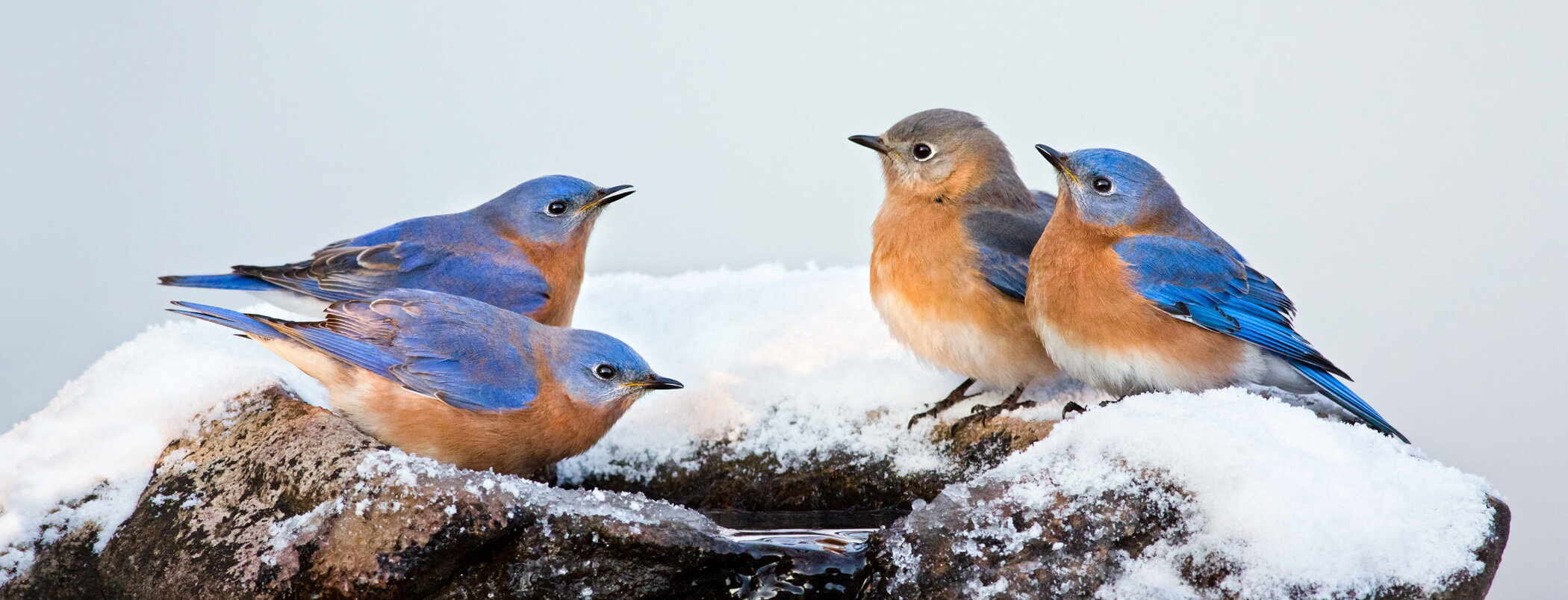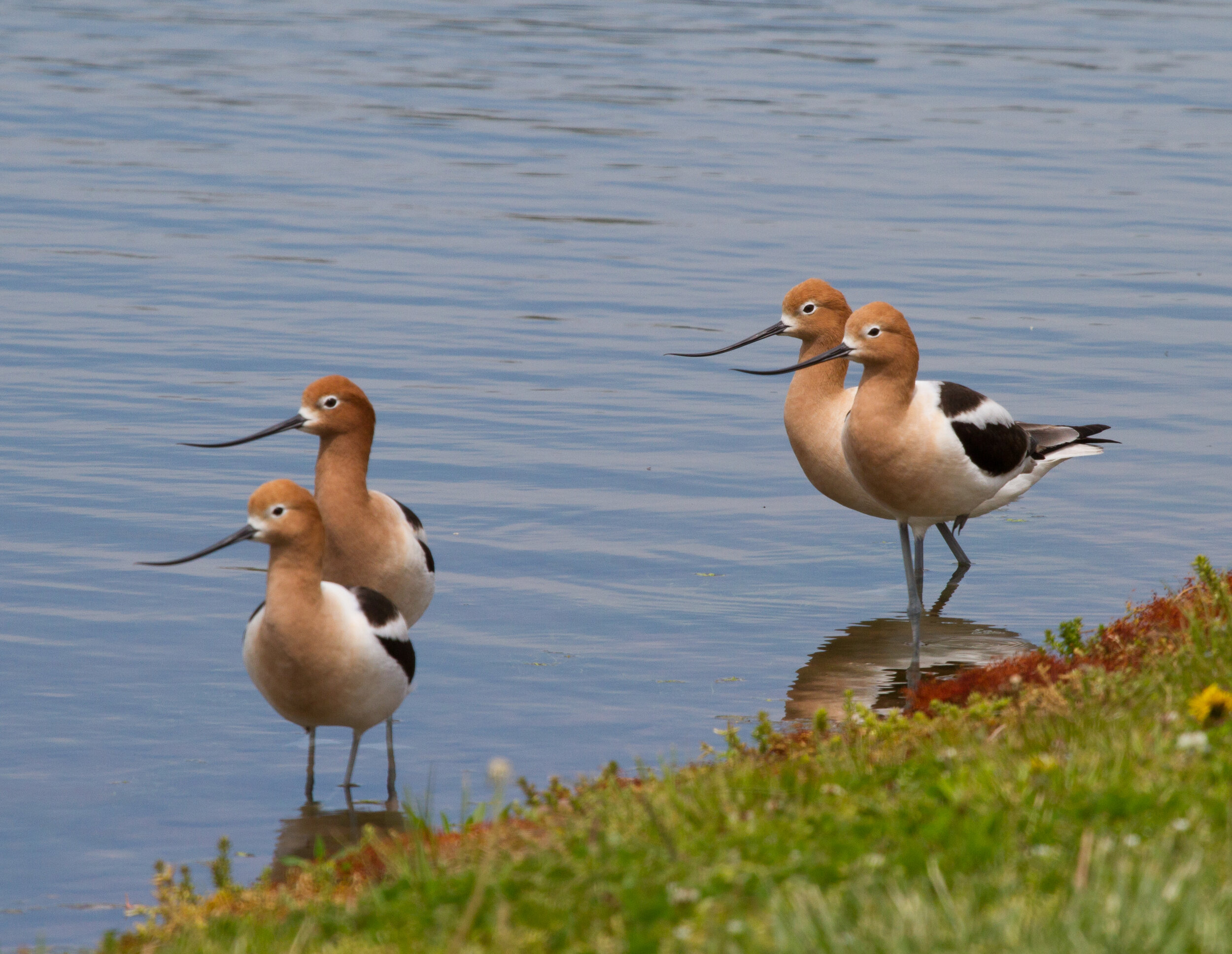
About VSO
Photo: Eastern Bluebirds, Bob Schamerhorn
The Virginia Society of Ornithology has a long and rich history. Since 1929 the Society has grown in number of members and in breadth of outreach. VSO has been central to many ornithological pursuits for over 90 years and our reach continues to grow. Anyone who is interested in deepening their knowledge of birding and ornithological pursuits in Virginia are encouraged to read past issues of the VSO’s journal, The Raven.
Ongoing activities of the Society include the following:
VSO supports a number of research projects (nesting studies, winter bird population surveys, etc.) aimed at making genuine contributions to ornithological knowledge.
VSO provides grants to community bird conservation projects, and scholarships to youth, undergraduate and graduate research projects under the direction of university faculty.
VSO supports study and education opportunities to minority and underserved youth.
VSO is the parent organization for the Virginia Avian Records Committee, VARCOM, which methodically evaluates and archives rare and vagrant bird sightings.
VSO publishes:
The Raven, published twice yearly, containing scientific articles about Virginia ornithology, and news of the activities of the Society and its chapters.
Virginia Birds, a quarterly publication that documents bird sightings throughout the state.
A newsletter, published quarterly, containing current news items of interest to members and information about upcoming events and pertinent conservation issues.
Virginia Birdlife, an Annotated Checklist, and its revisions
Yearly field trips with special programming and networking opportunities are held in February (Outer Banks of NC) and in September (Chincoteague, VA). Other field trips are hosted, when possible, in Virginia Beach, VA, Craney Island in Portsmouth, VA, and Piney Grove in Sussex VA.
Forays lasting a day or more are conducted throughout the state to under-birded regions and areas of focused avian research need.
An annual meeting is generally held in a different part of the state each spring, featuring speakers on ornithological subjects, updates on projects supported by VSO, a dinner and awards ceremony, and field trips to nearby areas.
VSO financially supports many regional and national bird conservation organizations.
VSO is affiliated with many bird clubs across the state, providing networking opportunities and strengthening of our conservation goals across the state.
VSO is an active partner in conservation across the state. As the parent organization of a statewide conservation organization, VSO remains abreast of issues in the state and nationally that affect birds. We attempt to be prepared to act, with our partner organizations and member bird clubs, on notification and education about conservation issues and topics that may improve or be a threat to the outcome of Virginia’s birdlife. Sign up for action alerts here.
Currently, the VSO is working in partnership with Virginia Tech and the Virginia Department of Wildlife Resources to publish the Second Virginia Breeding Bird Atlas, a multiyear project spanning the Commonwealth that will provide current data on the status of all species of breeding birds in Virginia.
VSO has recently received as a gift from Wayne O’Bryan a beautiful property called Bramble Hill which straddles Highland County, VA, and Pendleton County, WV. This property was given to VSO in memory of Mr. O’Bryan’s late wife, Margaret, who stewarded the property for many years in support of a breeding population of Golden-Winged Warblers and other high elevation early successional habitat specialists. Margaret and Wayne were generous with the property allowing birders to visit the property. VSO intends to continue this tradition and to maintain the habitat for these charismatic species. We also plan to encourage birding, education, and research opportunities in this unique place.
Read VSO’s Articles of Incorporation HERE and the VSO’s Bylaws HERE.

Become a VSO Member
When you become a member or make a donation to VSO, you support our efforts to protect and enjoy Virginia’s birds and conserve vital habitat.
Photo: American Avocets, Diane Lepkowski
